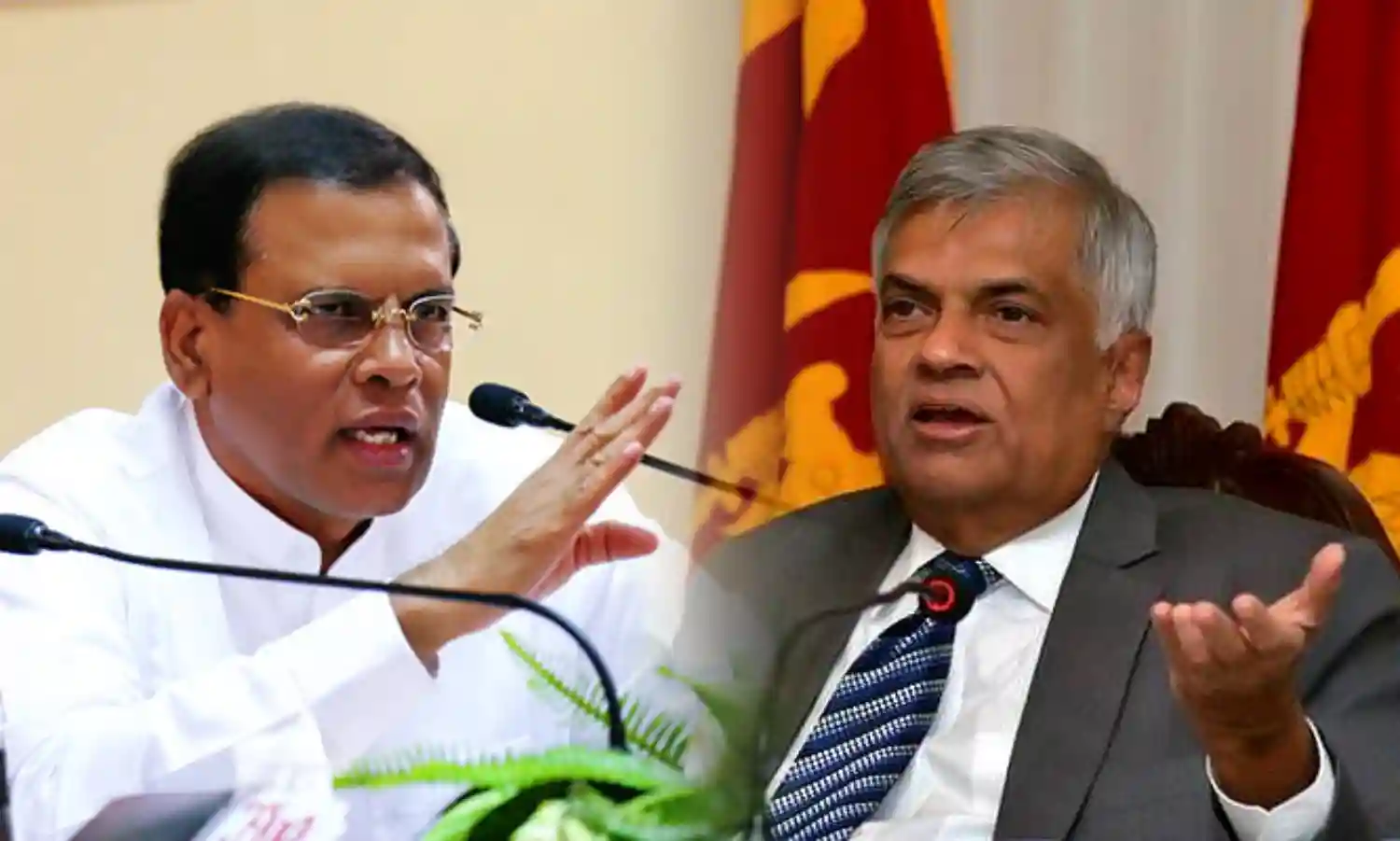Lanka Averts Danger of having Two Teams with Clashing Agendas at UNHRC
Sri Lanka will send only one combined delegation
COLOMBO: Sri Lanka, which was earlier going to send two delegations to represent it at the 40th session of the UN Human Rights Council (UNHRC) in Geneva, has now announced that there will be only one combined Sri Lankan delegation.
The government on Wednesday averted the danger of having two teams with clashing agendas at the UNHRC by announcing a joint delegation representing President Maithripala Sirisena and Prime Minister Ranil Wickremesinghe.
The Ministry of Foreign Affairs said that the Sri Lankan delegation will comprise: Tilak Marapana, Minister of Foreign Affairs (Leader of Delegation); Dr. Sarath Amunugama, Member of Parliament; Dr. Suren Raghavan, Governor of the Northern Province; Ravinatha Aryasinha, Foreign Secretary and A. Nerin Pulle, Deputy Solicitor General.
While Marapana and the officials will represent the Prime Minister, Dr.Sarath Amunugama an opposition MP, will represent the President. Presumably, there is now consensus between the President and Prime Minister on what to say at the world forum.
The UNHRC will consider the Report of the Office of the High Commissioner for Human Rights (OHCHR) on ‘Promoting reconciliation, accountability and human rights in Sri Lanka’ on March 20, while the draft resolution on Sri Lanka on the same theme, which Sri Lanka has signed up to co-sponsor, is scheduled to be taken up on March 21
Earlier, there were to be two delegations; one representing Prime Minister Ranil Wickremesinghe and his cabinet, and another representing President Maithripala Sirisena.
The President’s delegation was to consist of opposition MPs Sarath Amunugama and Mahinda Samarasinghe and the non-partisan Governor of the Tamil-speaking Northern Province, Dr.Suren Raghavan. And the Prime Minister's delegation was to consist of officials headed by Foreign Minister Tilak Marapana.
Conflicting Agendas
These two delegations had contradictory agendas. The Prime Minister’s delegation was to reflect the view that war crimes had taken place and that these had to be investigated and the culprits brought to book through a special judicial mechanism. It was to ask for a two year extension to implement the original resolution of 2015. And the resolution was to be co-sponsored by Sri Lanka.
The President’s delegation, on the other hand, was to argue that there was no need for a resolution because the Sri Lankan armed forces had not committed war crimes. It was to appeal to the UNHRC not to open old wounds and hamper the on-going process of reconciliation between the Sinhalese majority and the Tamil minority.
It was also to state that Sri Lanka cannot agree to a judicial mechanism with judges drawn from the Commonwealth and other countries as demanded by the UNHRC.
If two separate delegations had appeared with contradictory agendas, reflecting the domestic tug-of-war between President Sirisena and Prime Minister Wickremesinghe ,Sri Lanka would have become the laughing stock of the world.
The washing of domestic dirty linen abroad would have weakened Sri Lanka in the eyes of the world and given a handle to forces which want to bow-beat and dominate Sri Lanka.
High Commissioner’ s Tough Stance
The present UN Human Rights High Commissioner, Michelle Bachelet Jeria, a former President of Chile, appears to be a tough official. In her report to the Council, she encouraged Member States to prosecute Sri Lankans suspected of crimes against humanity, war crimes or other gross violations of HR in accordance with universal jurisdiction principles.
Jeria said that some form of international investigation and prosecution are needed to ensure that those most responsible for the most serious crimes are prosecuted.
“Claims that a domestic specialized process could suffice have not been accompanied by any serious attempt to establish one. No effort has been made to build the capacity required to conduct investigations, including forensic ones, or prosecutorial strategies, despite the repeated recommendations of the Special Rapporteur on truth, justice, reparations and guarantees of non-recurrence,” the High Commissioner said.
“The GoSL (Govt of Sri Lanka) has not announced any plan to create a special judicial mechanism, despite the commitment it implicitly undertook when it co-sponsored HRC Resolution 30/1 and the recommendations contained therein.”
“It has indeed denied the need for such a mechanism, particularly with respect to the involvement of foreign judges, despite abundant evidence that the ordinary criminal justice system is unable to deal with the nature of allegations and the complexity of crimes,” she said in her report.
Jeria noted that both the President and the Prime Minister of Sri Lanka have made statements denying the need of foreign assistance in this matter.
She has proposed that Sri Lanka invites the Office of the High Commissioner of Human Rights (OHCHR) to establish a full-fledged country office “to monitor the situation of HR in Sri Lanka, to advise on the implementation of the recommendations made by the High Commissioner, the HRC and other HR mechanisms, and to provide technical assistance”.
With regard to legislation and justice, the High Commissioner has recommended that the government of Sri Lanka, among other things, adopt legislation establishing a hybrid court to investigate allegations of violations and abuses of international HR law and violations of international humanitarian law.
The High Commissioner has also recommended that the situation of human rights in Sri Lanka “should remain firmly on the agenda” of the HRC owing to a lack of progress.





